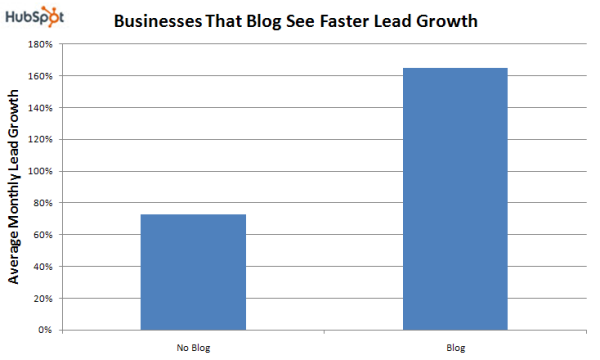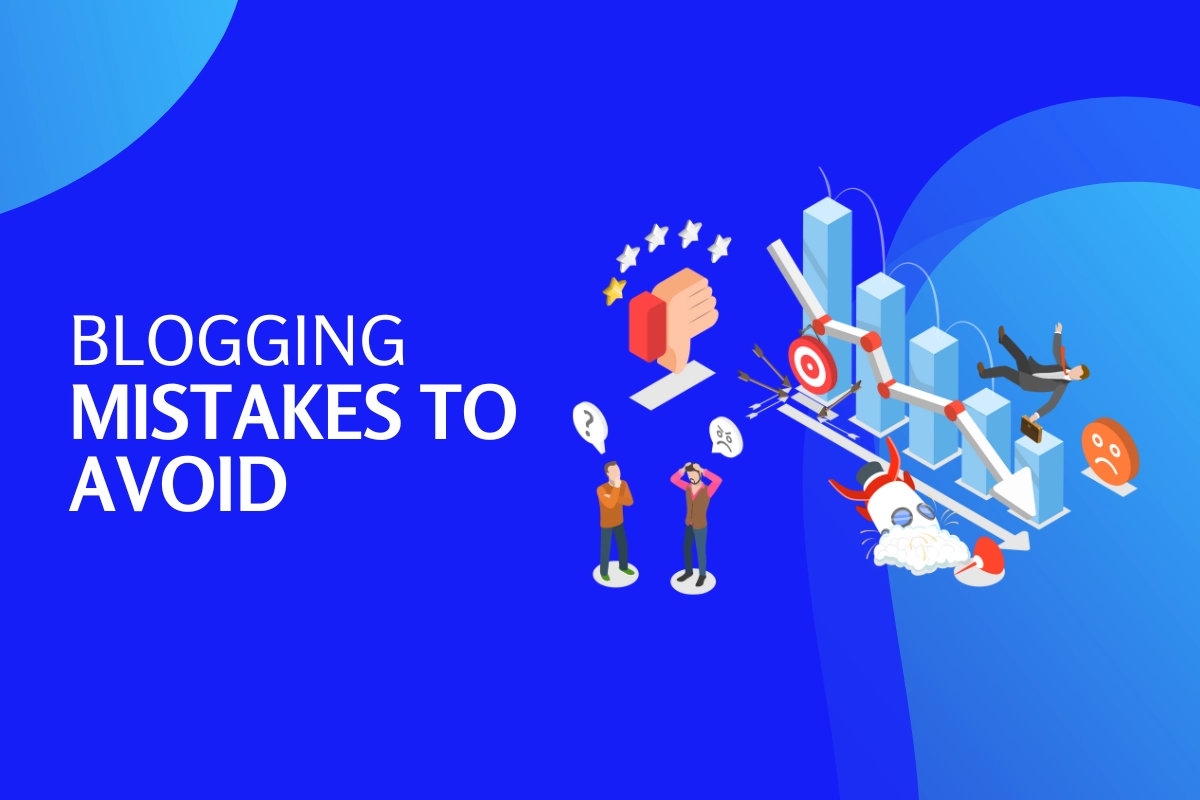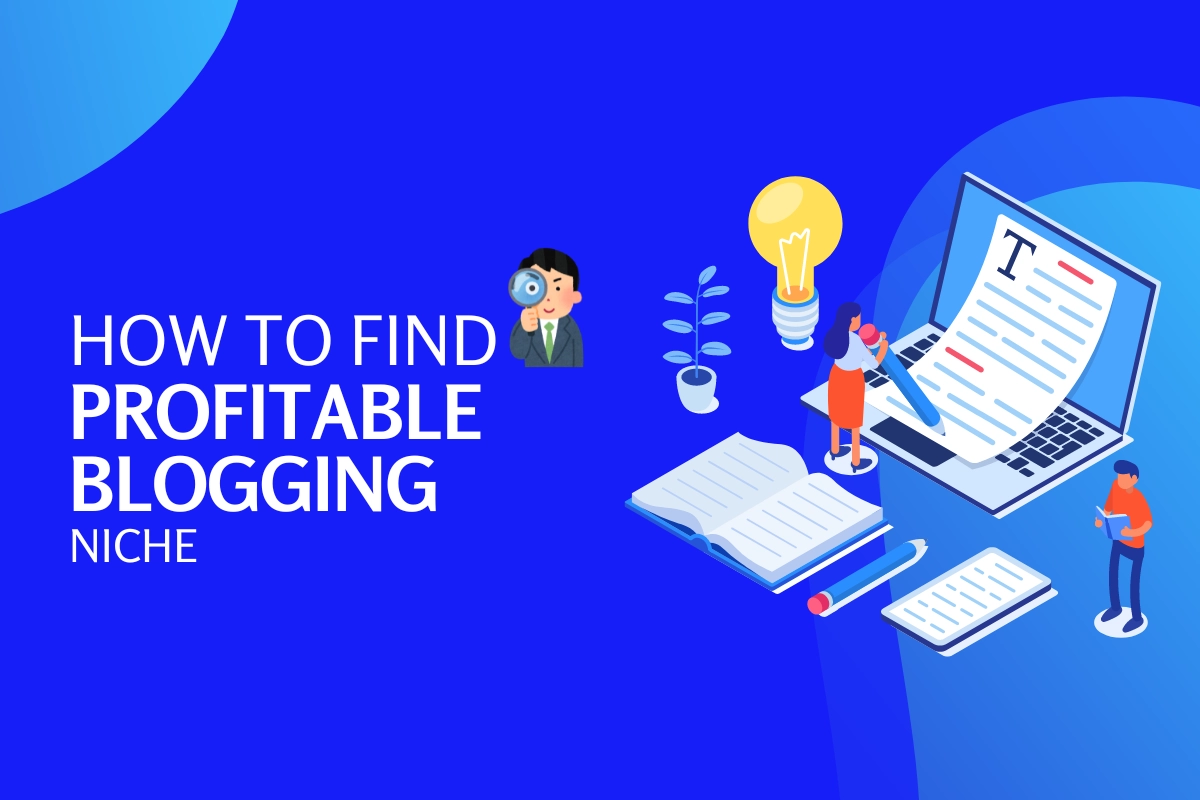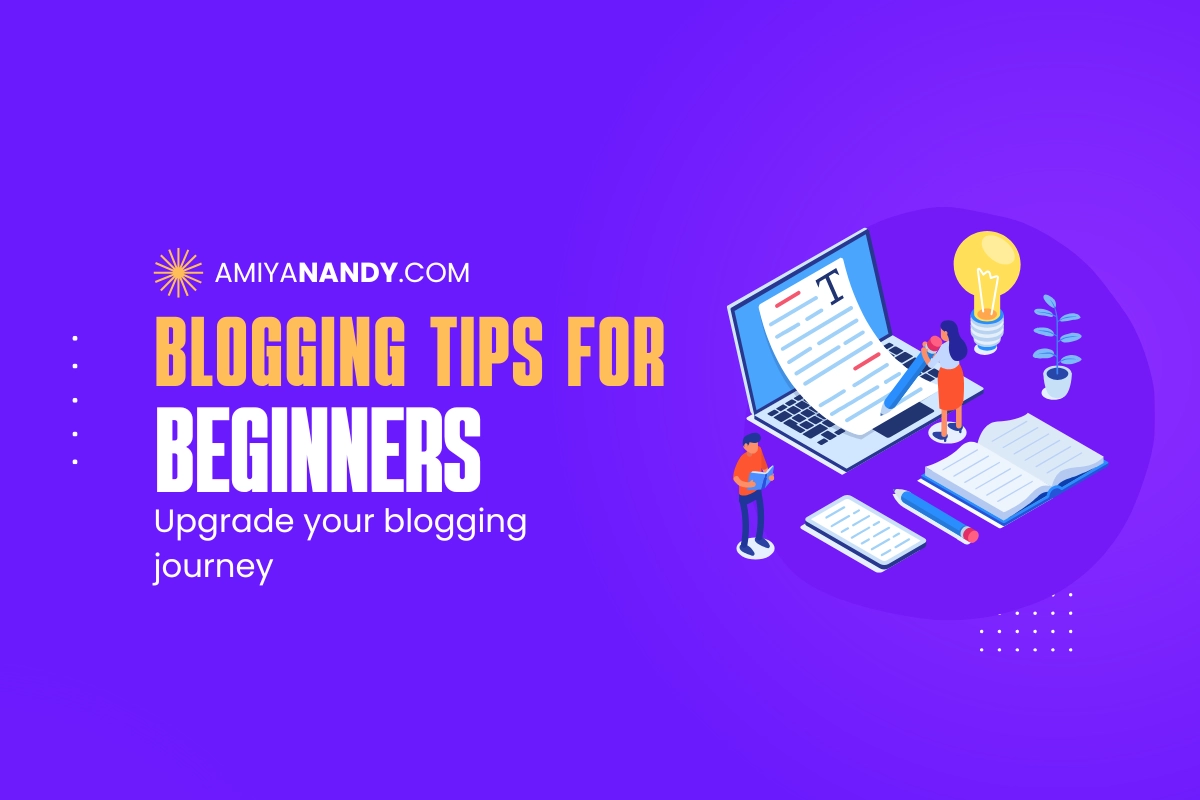I did not regularly publish blog posts, targeting difficult keywords to rank and making several blogging mistakes that were later corrected and still making profits from one of our blog websites.
No worries. I will let you know one by one so that you can avoid these blogging mistakes.
Actually, in this article, I will discuss 16 blogging mistakes that a newbie blogger should know before starting the blog or blog sections of their online business websites.
- Choose a clear, focused niche.
- Maintain high-quality, original content.
- Consistency is key.
- Optimize for SEO.
- Engage and promote your blog effectively.
Blogging is an unbelievable investment, and it compounds over time.
Here is why I can explain that if you really solve the pain points of the particular niche and provide a solution with your content or your product, people will connect with you and will find your next solution via your posts or service.
If you spend 2 minutes searching, your business will grow by adding a blog to your website or without a blog. You will find that blogging can help you gain 126% growth on your leads compared to those who do not have an active blog section on their website.

If your business has potential leads coming from your website, then you must start a blog just after launching your website. From the very first day, you should start talking about how differently you can serve with your product or service in your blog section.
So, not starting a blog from the very first day is the single biggest blogging mistake you can make.
Now, let’s get into the details.
Common Blogging Mistakes
1. Neglecting Niche Research
With a blog, your primary goal is to provide a perfect solution to your users. This can only be possible if you do proper niche research.
Effective niche research is the key to finding the questions your target users are seeking answers to, which in turn leads to the best solutions you can provide.
Try to find out where your customers hang out daily and what questions they are asking. If you find the questions after doing proper niche research, you can provide a solution too.
Sometimes, your customers are also unaware of their problems, and if you can help identify them, then your business will rock.
2. Poor Content Quality
Many times, newbie bloggers start writing about anything without knowing what their users care about. Thus, they publish poor-quality content that loses the trust of the users.
When you follow the first step then, you must find the topic ideas, do a bit of research, and provide solutions to the users.
Your writing must be easy, solution-driven, and easy to digest.
3. Inconsistent Posting
One of the biggest mistakes is that you do not make fishing content at a high rate. Inconsistency in publishing content can ruin the expectations of the regular visitors who are actually getting solutions from your blog.
If you fail to provide regular content, you can lose
- The expectation from your audience.
- Engagement of your readers.
- Trust and faith of your customers.
Another important factor of a successful blog is when they publish regular content. Google loves its consistency and regularly crawls its website, and thus, the blog gets a high authority score from Google and obviously high business potential gain.
Pro Tip: You can create a content publishing schedule using Google Sheets. It can help you note the headlines, keywords, publishing date, and last updated date. You need to update the sheets after every time you publish or update a post.
4. Ignoring SEO
One of the biggest mistakes I made at the early stage of my blogging journey was not caring about the power of SEO.
SEO stands for search engine optimization, and doing proper SEO can help you gain massive traffic to your blog and the growth of your business.
There are two main actions a blogger does not take, and it should be taken to identify the problem words and their value.
Problem words are the words the audience is searching for, and the metric should be how many of them are searching for solutions for the same words.
So, what are the key metrics you should check:
- Provide a solution-driven title for your blog post.
- Researching the keyword that the audience is searching for.
- Identifying the search volume, Keyword Difficulty, and Intent of the users.
- Use of images in between your posts
These key metrics should be checked, and when writing a blog post, you must put these and optimize your blog post before publishing.
5. Not Promoting Your Blog
No one will know if you publish a post and ignore promoting it. You can miss the opportunity to get an audience faster when you promote your blog posts.
The best option in 2026 promoting your blog is to build a social media presence across relevant social media websites, i.e., Facebook, X (Formerly Twitter), YouTube, LinkedIn, Medium, and Instagram.
Social media is a powerful tool for driving traffic. Regularly share your posts and engage with your followers to increase your blog’s reach.
The biggest promotion will be if you connect with other bloggers in your niche and ask them to provide guest posts. Guest posting on other blogs can expand your reach and bring in new readers. It also builds backlinks, improving your blog’s SEO.
6. Poor User Experience
Slow websites can be extremely frustrating for visitors. If it takes too long for your blog post to load, they could leave without ever reading anything! Make sure your site loads quickly, as this keeps readers engaged with the material being posted there and keeps readers happy to come back for more.
One major hurdle for readers is complicated navigation. If they can’t easily locate what they need, many will give up and go elsewhere. Create easy categories and include a search bar so people can identify exactly what they want quickly and efficiently.
Pop-ups that are difficult to close or appear too frequently may also become annoying for readers, prompting them to close them altogether and potentially lose interest in reading your site altogether. Only use pop-ups when necessary and ensure they can easily be closed – pop-ups should help readers, not chase them away!
7. Not Engaging with Your Audience
React to blog comments promptly to show readers you care what they have to say and create an inclusive community around your blog.
Ignoring comments may give the impression that their input doesn’t count for anything, so make sure you respond quickly when responses come in from readers – responding shows readers they matter and builds friendships within your blogging space.
One mistake you could be making is failing to engage on social media. Engaging in discussions on these platforms will increase blog traffic while simultaneously building stronger connections.
Remember to solicit feedback. Hearing what readers like and need can help you create better content that resonates with them.
8. Monetization Mistakes
One of the biggest mistakes you should avoid is to try making money from your blog too early. This can affect the visitors, and they should not realize that your primary goal is to make money, not provide a solution to their problem.
Avoid putting too many ads on your website. It cannot be very pleasant for readers. Try to keep 2 to 3 advertisement areas on your post pages.
If you are running an affiliate blog, try to convince your readers by providing proof of the service you are promoting with your blog. It will help you to build trust. When you recommend things you trust, your readers will appreciate it. Just make sure you’re being honest and not pushing products too hard. Your readers will value your opinions!
9. Overlooking Analytics
One mistake many bloggers make is failing to monitor their blog’s performance using tools like Google Analytics. This software can give invaluable insight into what works and doesn’t for your readers while giving helpful hints as to their interests and what resonates most.
Remember not to ignore the data generated from your blog. Paying attention to these numbers can help guide decisions regarding content production and promotion – leading to much greater success for your blog!
Set clear goals for yourself – setting specific goals will help keep you focused on what you want to accomplish and will show how much progress has been made over time. Goals provide direction and motivation when creating content!
10. Giving Up Too Soon
Building a successful blog takes time and can feel like an uphill battle at times. But remember: slow progress is still progress! Stay committed to your content development efforts by continuing your dedication towards building the best possible content for your readers.
And don’t forget to celebrate even small victories! From adding new followers, to receiving positive comments – each small win counts and helps increase motivation by reminding us we are making strides forward, no matter how small.
Flexibility is another essential trait. Don’t be afraid to adjust your approach depending on feedback received or how your blog is progressing – adapting to your readers’ needs is crucial for long-term success!
11. Writing Hard-to-Read Content
Let’s chat about your writing. To keep the reader engaged with your content easily and effortlessly, use shorter paragraphs with bullet points or lists as needed to break things up! That way, no matter if they’re browsing from their laptop or phone screen, they can quickly understand what you are communicating.
12. Not Using CTAs
Call-to-action (CTA) tags are your go-to when it comes to driving engagement with readers! CTAs direct them towards what you want them to do next, like subscribing to your newsletter or checking out a product. Ensure every post contains clear and inviting CTAs so your readers know exactly which action are expected from them after reading your content.
Evergreen content can be a game-changer for businesses of any kind. This type of material remains relevant no matter when it’s read, driving traffic long after your first publication date has passed. Try mixing in some timely topics as well as evergreen gems into your content strategy for maximum visitor retention and long-term success.
13. Neglecting Backlinks
Let’s not overlook backlinks. These are links from credible sites pointing back to your blog and they can significantly boost its authority and SEO performance. Focus on creating high-quality, shareable content while building relationships with fellow bloggers and influencers so as to earn those invaluable backlinks.
Plugins can add great features to your blog, but using too many can slow down performance and cause security risks. Keep things simple by only installing plugins you really need and keeping them up-to-date.
14. Not Protecting Content
Guarding your content is of utmost importance. Employ tools like Copyscape to detect any instances of plagiarism, and make sure your blog has an established copyright policy to deter content theft and safeguard all your hard work.
Avoiding these common blogging blunders to increase your chances of success and ensure a higher chance of blogging success. Focus on producing high-quality content, engaging with readers, and always seeking ways to enhance and refine strategies – and always remember blogging is an evolving journey that demands patience, dedication, and adaptability!
Success in blogging doesn’t depend solely on avoiding obstacles; rather, it requires making informed decisions and remaining committed to your goals. So keep on moving forward, and enjoy blogging!
15. Too Many Plugins Used Together
Plugins are great tools for adding features to your blog, but too many can cause slowness and security concerns. Keep things simple by only installing those you need and updating them frequently.
16. Not Securing Your Content
Protecting your content is of utmost importance. Utilize tools like Copyscape to detect plagiarism, and develop a clear copyright policy on your blog to deter content theft and ensure your efforts don’t get stolen by others.
Conclusion
By avoiding these common blogging mistakes, you can increase your chances of success significantly. Concentrate on producing high-quality content, engaging with readers, and constantly searching for ways to hone and refine strategies – remember, blogging is a journey which takes patience, dedication, and the ability to adapt.
Success in blogging doesn’t hinge solely on avoiding obstacles; rather, it requires making informed decisions and staying true to your goals. So keep pushing forward – and happy blogging!






